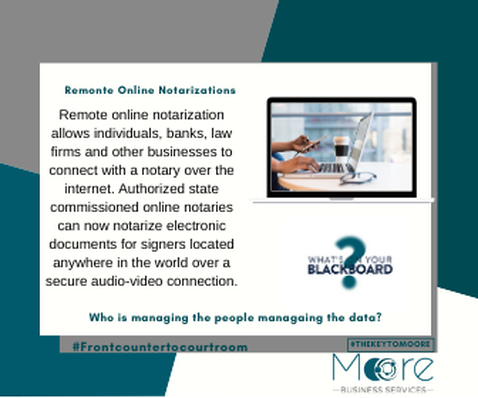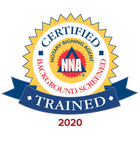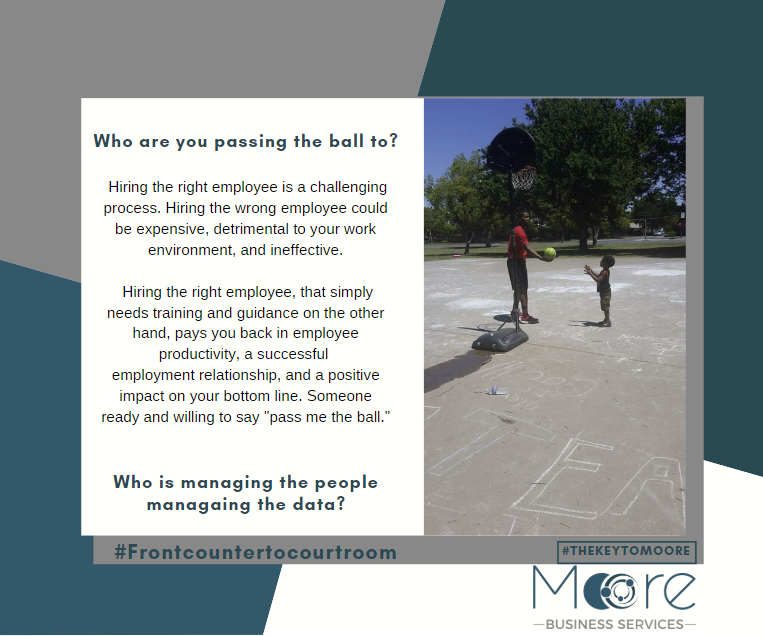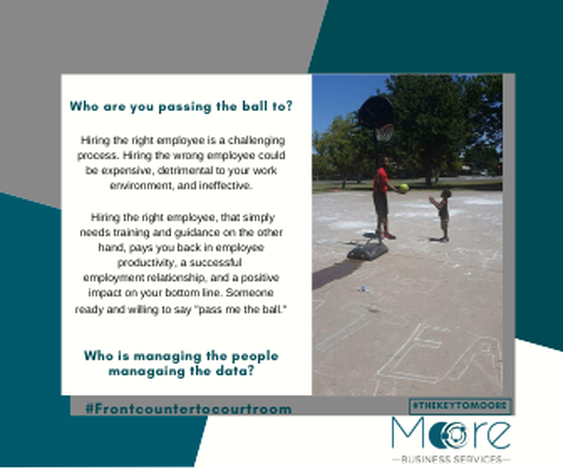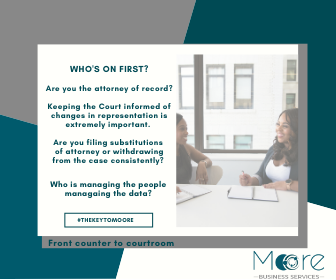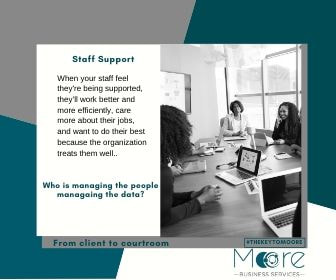|
Breaking the Mold: Unconventional Ways to Finance Your Business on a Budget
When you lack a significant amount of initial funding, launching a business can be a daunting undertaking. However, it is not impossible to start a successful business without a lot of money upfront. In fact, there are several ways to get your business off the ground without breaking the bank. Here are some tips for starting a business with little-to-no startup capital. 👉🏾Enter competitions and grants One way to acquire funding for your business is to apply for grants and competitions. Many organizations offer grants and prize money to entrepreneurs with innovative ideas. Winning these competitions can provide you with the necessary funds to get your business up and running, or at least give you a financial cushion to work with. 👉🏾Observe your credit rating If you're planning on taking out a loan to fund your business, it's important to keep an eye on your credit score. Lenders will look at your credit score when deciding whether or not to approve your loan request. A good credit score will also result in more favorable loan terms, such as lower interest rates. If your credit score needs some work, take steps to improve it before applying for a loan. 👉🏾Benefits of crowdfunding Crowdfunding is a popular way to raise money for a new business venture. There are several crowdfunding platforms available that allow you to promote your idea and ask for contributions from people who believe in your product or service. It's important to create a compelling campaign that will inspire people to donate money to your cause. 👉🏾Widespread networking Networking is an important part of starting any business, but it's especially crucial when you don't have much startup capital. Attend industry events, join professional organizations, and reach out to others in your field to build relationships and make connections. You never know who might be able to help you get your business off the ground. 👉🏾Pre-sale strategy One way to raise money for your business before it's even launched is to offer pre-sales or pre-orders. This allows you to generate revenue before you have to spend money on production and distribution costs. It's important to be transparent about the timeline for delivery, and make sure that your customers understand that they are essentially investing in your business. 👉🏾Kickstart your enterprise Bootstrapping refers to starting and growing your business without outside investment. This means that you'll need to be resourceful and find ways to fund your business through your own personal savings, credit cards, or by taking on a side job. While bootstrapping can be challenging, it can also be rewarding to build a business from the ground up without outside help. 👉🏾Power of minimum viable product (MVP) Creating a minimum viable product (MVP) is a great way to test the market without spending a lot of money on development and production costs. An MVP is a basic version of your product or service that allows you to get feedback from potential customers before investing too much time and money into your business. This feedback can be invaluable in shaping your product or service and ensuring that there is a demand for it. 👉🏾Content creation marketing plan Marketing your business can be expensive, but creating engaging and informative content is a low-cost way to get the word out. Start a blog, create social media profiles, and post regularly to keep your audience engaged. Share your expertise and knowledge in your industry to establish yourself as a thought leader and build trust with potential customers. You can learn more here. It's difficult, but not impossible, to launch a firm with little or no beginning money. By applying for grants and competitions, tracking your credit score, creating engaging and informative content, etc., you can launch a successful business without breaking the bank. Remember, starting a business is a long-term investment, so be patient, stay focused, and keep pushing forward. Moore Business Services, LLC can help you overcome tasks and goals through accountability. Learn more by calling (409) 210-2036.
0 Comments
Over 68% of today's businesses have a web presence through websites or social media pages. This is because digitization allows businesses to foster closer relations, breach new markets, and create excellent contact between customers and within the workforce. However, along with the adoption of digital tools comes the increasing need for business leaders to set better standards for work systems, and invest in upskilling employees to support their adaptation to new technologies.
With that in mind, the evolving nature of digitization has created a gap in skills for many business leaders, hindering their businesses' digital transformation. As 67% of business leaders claim, the inability to digitize companies force them to fall behind more technologically-advanced peers. To address this gap at an educational level, modern business administration programs now focus on current industry trends, including hybrid workforce operations that integrate e-learning and social media platforms. Whereas traditional business courses put an emphasis on how management and business administration intersect, modern programs further equip business leaders with the expertise to manage and retain talent through connecting and engaging their employees in the face of emerging technologies. As the world ushers in rapid technological developments, the purpose of business leaders has become twofold: to integrate digital practices into their companies and to assist and encourage their workforce to learn these processes. But, what are the changes evident in how businesses operate today? Here are four ways in which rapid digitization changed the way businesses are managed: Leading hybrid teams Hybrid work arrangements necessitate the need for business leaders to adopt new behaviors and practices. This is because it’s crucial to consider employee preferences into making sure these new work practices are implemented properly. A determinant of this success is the use of the right communication channels. Because hybrid setups factor in organizational distance, information should be clearly distributed. This pertains to regular interaction and feedback, better monitoring of teamwork processes and member contributions, and a quicker detection of errors and issues. One way to manage complex tasks is through asynchronous tools such as video conferencing or an omnichannel forum to ensure all your employees are getting equal support across different digital platforms. Making the necessary structural changes to teams A successful digital business transformation can be realized through strategy, leadership, and a strong organizational culture. This means businesses should reflect the commitment of senior management to break traditional workforce boundaries, as well as motivate employee involvement in the process. This will result in a re-imagined workplace, one where companies can adopt a project-based approach to promote independence and growth among their employees. As such, employees are given a higher sense of responsibility, increasing their engagement in future tasks. Furthermore, business leaders can also offer aid by empowering project managers or team leaders to clarify potential issues, and ensure there is technological or infrastructural support when necessary changes have to be made. Training employees for new platforms Hybrid operations are not without obstacles, especially since they incorporate new platforms into their daily processes. Employees must learn to balance being proficient in the processes specific to emerging digital tools such as collaboration apps and virtual meetings, as well as gearing themselves to be more efficient despite the changing landscape of their workplace. As such, business leaders need to invest in educational resources or additional skills training for their employees. This not only reinforces opportunities for professional growth, but it also means their people’s well-being and productivity are prioritized. Some of these online platforms include time management applications that help oversee and monitor individual tasks and team projects, as well as collaboration tools that promote strong communication between workers, customers, and even business partners. Maintaining customer relationships virtually The advent of digital technologies empowered online retail and financial services. Not only that, it has opened a new avenue to boost customer and employee relations. One way is through social media platforms such as Instagram, Twitter, and LinkedIn— which are utilized to increase engagement. Not to mention, e-commerce sites equip customers with the ability to compare, research, and purchase products online. This means businesses are granted access to data-driven insights on their target market’s behaviors, preferences, and reviews. This also prompts quick responses to customer queries that help sustain trust and provides vital feedback that can inform how future marketing campaigns are crafted going forward. If you want to make an effort to further streamline operations for your hybrid workforce, and promote team cohesion in the process, consider Moore Business Services. Here, we facilitate better task management practices and guide you into creating productive team schedules. Article written by Royce Anne James Exclusively for Moore Business Services, LLC  How to Strategize Business Growth With Technology If your business is like most others, all of the goals and strategies you establish add up to one overarching goal: growth. We live in a day when technology is helping teams work more efficiently and productively than ever before. And if your company hasn’t embraced digital transformation, you could be missing out on some significant growth opportunities. Instead of letting that happen, consider these ---> tips <----- on incorporating more tech into your operations! Embrace Big Data Because so many companies are going digital, there is endless data that your team can use to make better decisions going forward. You can get information from customer service channels, mobile and web media, operational tools, and many other sources. By investing in the right data collection and analysis tools, you can position your team to understand your market and competitors more deeply, significantly reduce risks, enhance your services or products, and boost the overall efficiency of your operations. You can also use data to optimize processes to reduce the need for your employees to perform repetitive or redundant tasks. When you use high-quality automation systems, your team can be confident that mundane jobs will be completed efficiently. For example, you can identify, validate, and enhance your workflows to the benefit of your entire organization through process mining (this is known as process mapping as well). Besides improving efficiency, employee engagement, and employee satisfaction, process mining reveals new opportunities, helps you manage risks, and boosts your bottom line. Getting started simply requires you to find data sources, establish a timeframe, and choose the stakeholders. Get Your Employees on Board Selling your staff on digitizing processes is crucial to your success. You may have employees who are a bit resistant to the technological changes coming. After all, it can be challenging to learn new methods and tools, especially when you are transforming entire processes. Describing the benefits of going digital and how it will improve employees’ work experience will go a long way in winning over your team. Most employees will jump on the prospect of spending less time on menial tasks and more time on meaningful work! One way to show how digital transformation can benefit your team is to create infographics that illustrate the improvements to your internal processes. By using an infographic template, you can customize each representation with your own designs, background, text, and colors. Visualizing the new processes will help your employees clearly understand what to expect. Incorporate the Cloud Companies used to run applications and programs through downloaded software on their servers or computers. Cloud computing is even more efficient than that was. Moving to the cloud is essential if you want to implement powerful growth strategies because you can manage invoicing, collaboration, marketing, and many other business areas in a secure and easy-to-access location. You can also manage your operations from any device, anywhere, and at any time. Use Productivity Tools If your team isn't using productivity tools, you're missing out on a plethora of benefits. These tools help you to accomplish more in less time, meaning your employees will have more freedom to work on meaningful tasks that take your company to new heights. The right tools will help you track your progress and evaluate your overall performance, and there are tons of cloud-based solutions worth considering. If you’re ready to improve your team's time management, look to planning tools, time-tracking software, to-do lists, calendar systems, and other tools on the market. If you want to take your time management to even greater heights, invest in professional guidance from Moore Business Services! At the end of the day, every company wants to grow healthily. And while doing so comes with challenges, technology abounds to help teams move in the right direction. Consider the ideas above for making digital improvements to your operations, and keep researching the various tools that can keep your employees working more productively, efficiently, and happily! Would you like to read more helpful content or learn about the business services we offer? Visit Moore Business Services.us today! Practical Time-Saving Apps for Entrepreneurs
Photo credit: Pixistock.com As an entrepreneur, you have to maintain oversight of every aspect of your company's operations. From making sure your customers are happy to ensuring bills are paid on time, you're most likely in charge of it all. Luckily, there are handy apps that can help save you time and worries. This guide provides tips on apps that business owners of all kinds can use to make life easier. Apps to enhance productivity As an entrepreneur, you have a lot to get done every day. Overseeing employees, interacting with customers, checking inventory, paying invoices—the list goes on and on. Good time management can help keep you on track and boost productivity. There are many tools to help. Amazon Sellers in particular can benefit from apps like Sellermetrics, which tracks Amazon sales ranks, and AMZShark, which makes for more efficient SEO. Apps to improve financial management Stringent financial management helps you keep an eye on your business income and expenses. You can rely on apps to help with everything from expense tracking to accounting and banking. Using a bank account balance API is one handy option for you and your customers. It integrates with your own business app or online payment system, allowing customers to ensure they have the money needed to make a payment and avoid needless credit card fees. Apps to simplify collaboration Collaboration is another common hurdle for entrepreneurs. You want to maintain connections with workers, customers, business partners, vendors, and more. Convenient collaboration apps that can help include Slack, Flock, Microsoft Teams, Discord, Zoho, Cliq, and Twist. If you're an Amazon Seller, you may also want to invest in customer service apps to maintain contact with clients like ZenDesk and Groove. Apps to enhance document sharing Invoices, contracts, and receipts are just a few of the types of documents you may have to deal with as an entrepreneur. Keeping this paperwork organized and readily accessible in a single digital database enhances convenience. There are also apps you can use to share documents with external parties, like Buffer, Dash, and HubSpot. In an increasingly digital world, these tools expedite business processes, boosting convenience for all involved. Apps to expedite marketing efforts Marketing is a critical component of any business's success. You need marketing to attract customers, sell more products and services, and boost long-term growth. Tools like HootSuite are handy for automating social media marketing, which saves time. There are also apps designed for niche fields, like Amazon sellers. Tools to help Amazon sellers market their goods include Ignite by SellerLabs and Feedback Genius. Whatever type of business you run, the above apps can help streamline operations and save stress. Best of all, there's no need to invest in pricey tech tools. You can fit all these valuable tools in the palm of your hand. All you need is your phone. Moore Business Services provides accountability support for business coaches and consultants so they can lead their teams, boost client retention, and achieve their goals. Call (409) 210-2036 to learn more! Remote Online Notarizations (RON) is becoming a part of tech tools. Remote Online Notarization allows individuals, banks, law firms and other businesses to connect with a notary over the internet. Authorized state commissioned online notaries can now notarize electronic documents for signers located anywhere in the world over a secure audio-video connection.
During this time of uncertainty, many people are opting to stay home. The demand for E-notary services have risen, catching law firms (and other businesses) unprepared. “E-notary” is a term often used to describe an electronic or remote notary. E-notaries are commissioned separately from regular notaries and require extra security measures and stricter record keeping. While someone can be both an electronic and remote notary, they are not the same thing. Electronic notarization is similar to a traditional notarization with all parties present in the same physical room but with the documents executed via electronic signature. Remote Online Notarization, also called RON, takes place over the internet with parties using webcams. This is now completely legal in some states. (See below). When most people think of E-notary they think of RON. This process is simple and can keep you or your client from having to leave their home or office. This is an email driven process. There are several ways to accomplish this process. The notary will send out an email with instructions on how to proceed, including a special identity authentication called KBA (knowledge bases authentication) which can be completed very quickly. At the time of the online appointment, after identities are verified and signatures have been placed, the notary will add their seal. Once this happens, the recording stops and all parties immediately receive an email with their new notarized document. If your client happens to be out of state at the time of the appointment, no worries, there are no restrictions on the signer’s location. A signer literally can be anywhere in the world and still get their document notarized remotely. Currently, there are 27 states that have enacted some form of remote online notarization (RON) law: Alaska, Arizona, Colorado, Florida, Hawaii, Idaho, Indiana, Iowa, Kentucky, Louisiana, Maryland, Michigan, Minnesota, Missouri, Montana, Nebraska, Nevada, North Dakota, Ohio, Oklahoma, South Dakota*, Tennessee, Texas, Utah, Vermont, Virginia, Washington and Wisconsin. Have you added remote online notarizations to your staffs list of authorized tech tools? See Tech Tools - ATT presentation I offer an additional convenience allowing your staff to schedule appointments for your clients directly with me. Remote online notary appointments are for anyone that need important documents notarized. Schedule an appointment #thekeytoMoore #managingPeopleProcessesProjects Hiring the right employee is a challenging process; Hiring the right employee, that simply need training and guidance on the other hand, pays you back in employee productivity, a successful employment relationship, and a positive impact on your bottom line.
The right employee enhances your work culture and pays you back a thousand times over in high employee morale, positive forward-thinking planning, and accomplishing challenging goals. It also ensures that you are making the most of the time and energy that your other employees invest in a relationship with the new employee. Hiring the wrong employee is expensive, costly to your work environment, and time-consuming. Success is a process. It starts by taking into account your processes and procedures. Are there processes and procedures that can be streamlined? Could you use part time or full time support? Is it worth hiring additional in-office staff or are there repetitive tasks that could be outsourced; Saving additional money in employee overhead? You have a small but mighty team, who are all at their max with responsibility; delegating hiring an additional team member to your current staff, could cost you in important deadlines getting missed, and tasks going undone. Not getting additional support to aide in the process of hiring, onboarding and/or managing a new team member could also be costly. Part of supporting your staff, also means understanding when additional players are needed for the team. Take a look at other ways staff support is important to your firms bottom line. Remember, an accepted offer, is really just the beginning of the hiring process. A key part of onboarding new team members is training. Do you have adequate standard operating procedures written? Having a good training process in place is crucial for the success of a new team member – it’s also a great opportunity to, encourage good work habits and ensure alignment on processes, long-term goals and quality control from the beginning. Systematic Excellence Podcast is a good resource of how to get it right. Here they talk about the hiring process and how to avoid common mistakes they see over and over. Listen now! https://lnkd.in/e6AaYQX You don’t want to miss it! Moore Business Services: Managing the people managing the data. Interpreter Services:
The use of professional interpreters (in person, video remote interpreting or via telephone) is becoming increasingly more common. More than 25 million Americans speak English “less than very well,” according to the U.S. Census Bureau. Professional interpreters are superior to the usual practice of using ad hoc interpreters (i.e., family, friends, or untrained staff). Untrained interpreters are more likely to make errors, violate confidentiality, and increase the risk of poor outcomes. Children should never be used as interpreters except in emergencies. In addition to acting as a conduit for the discussion, the interpreter may serve as a cultural liaison. When a professional interpreter is not available, phone interpretation services are great alternatives. Multilingual staff members can interpret, based on their comfort levels, and should be encouraged to receive additional training in interpretation technique; fluency alone does not make them effective interpreters. The use of untrained interpreters is the proverbial “broad path of least resistance,” resulting in many pitfalls. Ad hoc interpreters—usually friends or family—have multiple limitations. Do you know how effectively his or her message is being interpreted, which makes it easy to lose control of the conversation . Nonprofessional interpreters have not received training and may not be aware of the need for confidentiality. The use of nonprofessional interpreters increases the risk of nonequivalent interpretations, leading to possible misunderstandings.It is much easier to ask questions in another language than to understand the response. Overconfidence in one's language abilities can lead to serious errors and substandard outcomes. When making arrangements with a professional interpreter, it is important for your staff to confidently relay why there is a need for the interpretation, who they will be interpreting for, the approximate amount of time needed and a quick explanation of your offices’ practices and procedures. Also, it is of utmost importance to relay to the interpreter that their services are limited to language interpretation, and not offering their personal opinions. Is your staff equipped to adequately arrange for professional interpreters when needed We can help develop an effective checklist for your interpreter needs. #thekeytoMoore #managingPeopleProcessesProjects When your legal staff is assisting in preparing you for court, it's important that they know and understand the rules of the court. It's not always helpful to pre-mark exhibits, and most times not allowed. If done inadvertently, it can cause additional work and steps for the courtroom clerk. We (courtroom clerks) understand they are trying to be helpful and even think it is saving time. The exact opposite could be true based on the sequence of events during the proceedings. And it is the courtroom clerk's responsibility for the custody, storage and transfer of all court exhibits during trial/hearing. This ensures that the exhibits are marked in proper sequence as the case proceeds and will not leave gaps in numbering in case counsel decides not to offer certain exhibits after they’ve been marked, and makes it easier for the clerk to keep track of the exhibits. "Happy Clerk, happy Court!"
It is very important to note, if your court offers e-filing, do not transmit your exhibits electronically prior to trial. Exhibits should be physically presented to the courtroom clerk in court to have exhibit labels affixed for proper identification and to be accurately recorded on the Exhibit List by the clerk All exhibits (received, withdrawn, denied) will be marked by the clerk with the important identifying information. HELP us stay safe; If any exhibits are deemed to contain biological (DNA) material, it is the responsibility of counsel to clearly identify and designate the exhibits as containing biological (DNA) material. There are usually gloves and other items available in the courtroom for handling such exhibits. Please give the clerks fair warning so that they can be prepared to safely handle such exhibits. In addition, the retention period for exhibits containing biological (DNA) material is much longer, so it is important for counsel to properly identify these exhibits so they are retained for the appropriate period of time. Counsel may elect to review the Exhibit List upon conclusion of trial to insure proper designation of exhibits. To help simplify the return of exhibits, it is very helpful if the parties/counsel can stipulate to the return of exhibits. Use of a stipulation eliminates the need to send letters to counsel/parties offering back the exhibits. Remember, "Happy Clerk, happy Court." Common Guidelines for court exhibits: "Received” exhibits are maintained by the clerk and made part of the record. “Withdrawn” exhibits may be returned to the proffering party. “Denied” exhibits are to be maintained by the clerk for purposes of appeal. Are you the attorney of record? Keeping the Court informed of changes in representation is extremely important. Are you filing substitutions of attorney or withdrawing from the case consistently? That rings so true for client representation too often in the courtroom. Keeping the court informed of who the current attorney of record is so important. The clerks of the court provide and mail notices, court minutes and other documents based on the information obtained from the court file (or record). Often times, court minutes are generated electronically. What is in the system is most times what is generated on the minutes, and should accurately reflect the attorney of record, including who was actually in court for the hearing. If/when you are appearing in court on behalf of another attorney or if you are making a special appearance, don’t forget to “state that for the record”. These protocols are often forgotten if not prompted by the Court or the clerk.
Take our short quiz to find out what your staff could use help with!
When your staff feel they're being supported, they’ll work better and more efficiently, care more about their jobs, and want to do their best because the organization treats them well. 👏🏾👏🏾There are as many reasons to support the people that work with you as there are reasons to care about them. When your staff feel they're being supported, they’ll work better and more efficiently, care more about their jobs, and want to do their best. Other reasons to provide support include:
RIGHT ON TARGET I was listening to some employees of Target the other day on TV and thought, now they're are doing something right. They are invested in their team members (employees), concentrating on training and development and improving processes. These are some key things to attracting and retaining key talent. Employing key talent, helps with providing great customer service. Their team members collectively spent millions of hours training for their new roles. You can read more at: https://corporate.target.com/article/2019/12/stores-2019 Several years ago, we saw huge potential in stores and put them at the center of our strategy, which required a shift in how we operated. To do that, we began a massive, multi-year effort to redefine what it means to work at Target, says John Mulligan, Chief Operations Officer, Target. |
|



